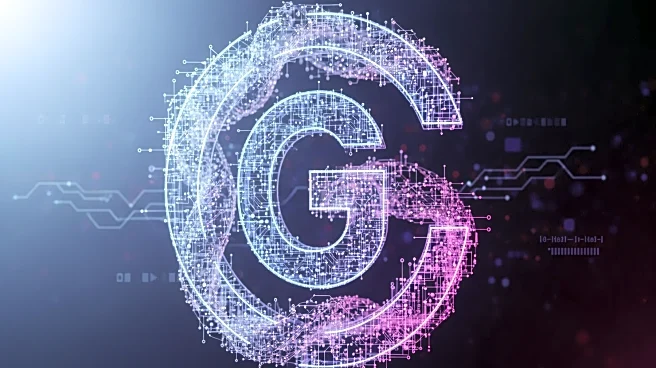What's Happening?
The rapid advancement of artificial intelligence (AI) is causing significant disruptions in copyright laws, particularly concerning the use of copyrighted material for training AI models. As tech companies
race to develop sophisticated AI systems, they require large volumes of high-quality, human-generated content. This has led to numerous lawsuits, including high-profile cases like The New York Times v. OpenAI, where the publisher alleges unauthorized use of its content by AI systems. The core issue revolves around whether AI companies can use copyrighted material without permission, potentially infringing on creators' rights. The fair use doctrine, part of the Copyright Act of 1976, is being scrutinized as companies seek exceptions to use copyrighted content without licensing fees.
Why It's Important?
The intersection of AI and copyright law raises critical questions about the value of creative work and the balance between innovation and intellectual property rights. The outcome of ongoing legal battles could redefine copyright protections in the digital age, impacting creators, publishers, and tech companies. A fair use exception for AI could significantly alter the landscape, allowing tech companies to use copyrighted content without compensating rights holders. This has implications for the creative industry, potentially affecting revenue streams and the recognition of creative contributions. The debate highlights the need for updated legal frameworks to address the unique challenges posed by AI technologies.
What's Next?
The legal landscape surrounding AI and copyright is likely to evolve as courts address the complexities of fair use and infringement. Stakeholders, including creators, tech companies, and legal experts, will continue to engage in discussions to find a balance between innovation and rights protection. Legislative action may be considered to clarify the application of copyright laws in the context of AI, potentially leading to new regulations or amendments. The resolution of current lawsuits will set precedents that could influence future cases and the development of AI technologies.
Beyond the Headlines
Beyond legal implications, the debate over AI and copyright touches on ethical considerations regarding the use of creative works. The situation raises questions about the role of technology in shaping cultural and artistic expression and the importance of protecting human creativity. The discussion also highlights broader issues of economic policy and the value placed on intellectual property in the digital era.











